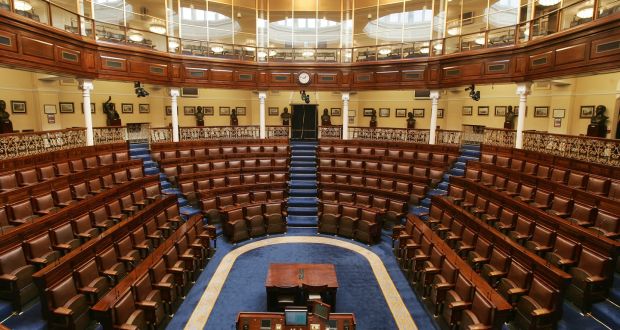
The country has been in an unprecedented housing crisis for the better part of a decade now. Directly where Padraic Pearse stood outside the GPO and read that the nation of Ireland would “cherish all children equally” volunteers are now feeding homeless children.
Young people trying to contribute to society at a higher level by getting a university degree are effectively being penalised by paying extortionate prices to rent city accommodation.
Those are just the lucky ones, many students in Galway and Limerick particularly were unable to get any accommodation and are forced to live in hotel rooms or commute for hours everyday.
And even after going into debt in order to get an education, most of the current generation will be renting their homes for the rest of their lives.
It wouldn’t be accurate to simply blame landlords for this crisis; a large part of this problem lays at the feet of consecutive governments for failing to deal with the issue before it reached a fever pitch.
But when 40 out of 160 TDs are landlords, it’s worth taking a deeper look at where their loyalties really lie.
TDs are already paid €96,000 a year, not counting pensions or expenses, meaning that they make almost double the annual wage of the general population.
Already this is significantly more income than the people who gave them the jobs and paid their salaries.
On top of that, 68 of the country’s TDs are millionaires.
They certainly will never have a tenant’s experience of spending years paying a mortgage on a house they’ll never own.
Or be one of the 4% of Irish people who believe they will need to move in the next six months due to the inaffordability of their housing, according to the Irish Human Rights and Equality Commission.
This disconnect from the population is cause enough for concern on its own but when it comes to proposals like Labour’s call to introduce a three-year rent freeze, can TDs really be expected to do what’s best for renters when it’ll harm their own incomes?
Other legislation sought by Labour aims to combat the problem of landlords demanding that tenants have a house professionally cleaned before they can have their deposit returned.
Our politicians are already voting on giving themselves payrises every year while depriving student nurses, so it’s unlikely to imagine a TD voting to establish a rent-cap on an area where they own apartments.
Deirde Conroy ran as a Fianna Fáil candidate in the summer by-election, and was exposed for having an offensive blog where she described her time renting a room in her house to a Latvian man.
She criticised him for using the kitchen (so he can eat food in the house he’s paying to live in), joked about renting her linen closet out to a student, and when the Latvian man left she wrote that “after the Latvian experience, better to stick with what you know.”
She was never elected, but there must be countless landlords in the Dáil with this out-of-touch mentality and the common sense not to express such views online for the whole world to see.
Instead they channel it into their voting record.
Leo Varadkar once said on rent freezes that “one person’s rent is another’s income.” Has he considered that maybe people shouldn’t be forced to use so much of their income on a place to live? Money they could otherwise be using to save for a mortgage.
As one of the groups most affected by the housing crisis, students should be considering this question even more closely than everyone else.
Property and business shares of politicians are recorded for good reason.
As well as requiring a political candidate to be over the age of 21 and an Irish citizen, the current rules, they should also be compelled to sell or offload any residential property they rent if they get elected.
Even if they aren’t acting insidiously for their own benefit, the perspective of lawmakers is one of renters rather than one of tenants.
The government should be more accessible to the people, more representative of the country.
Jamie Mc Carron
Image Credit: Alan Betson



